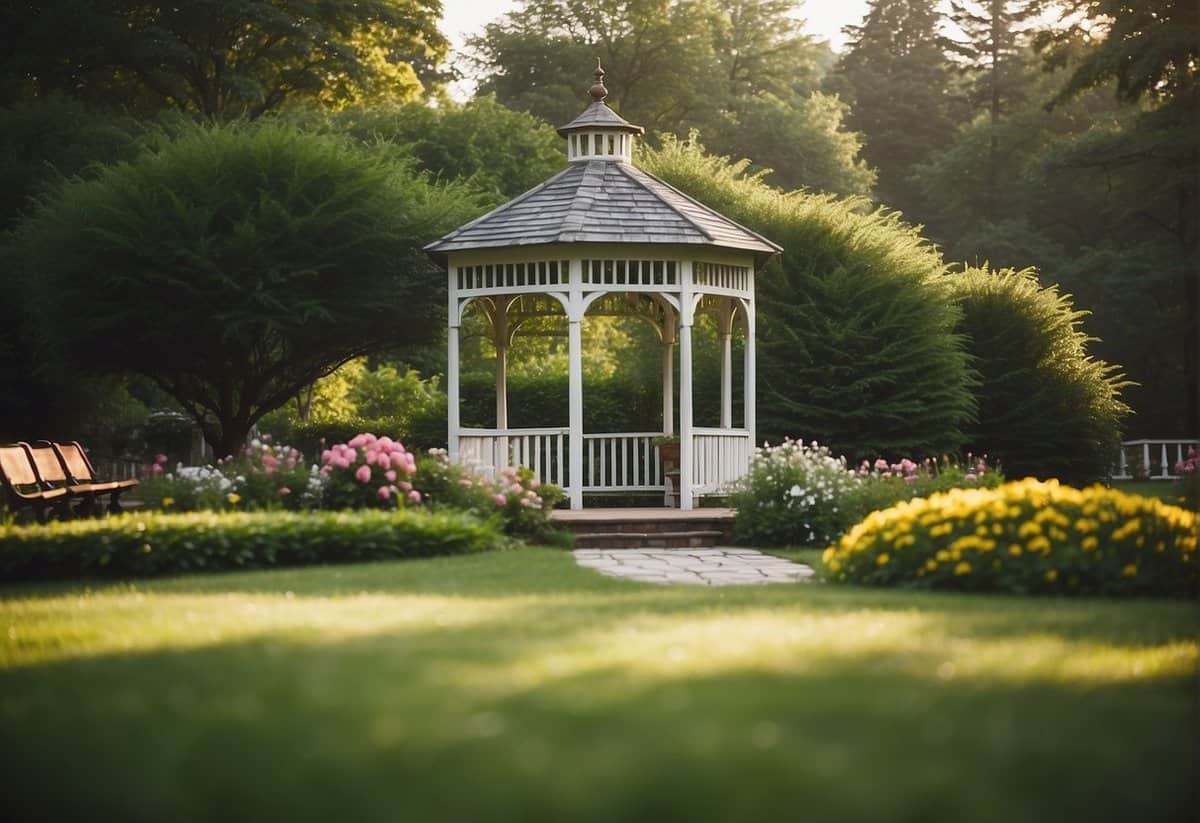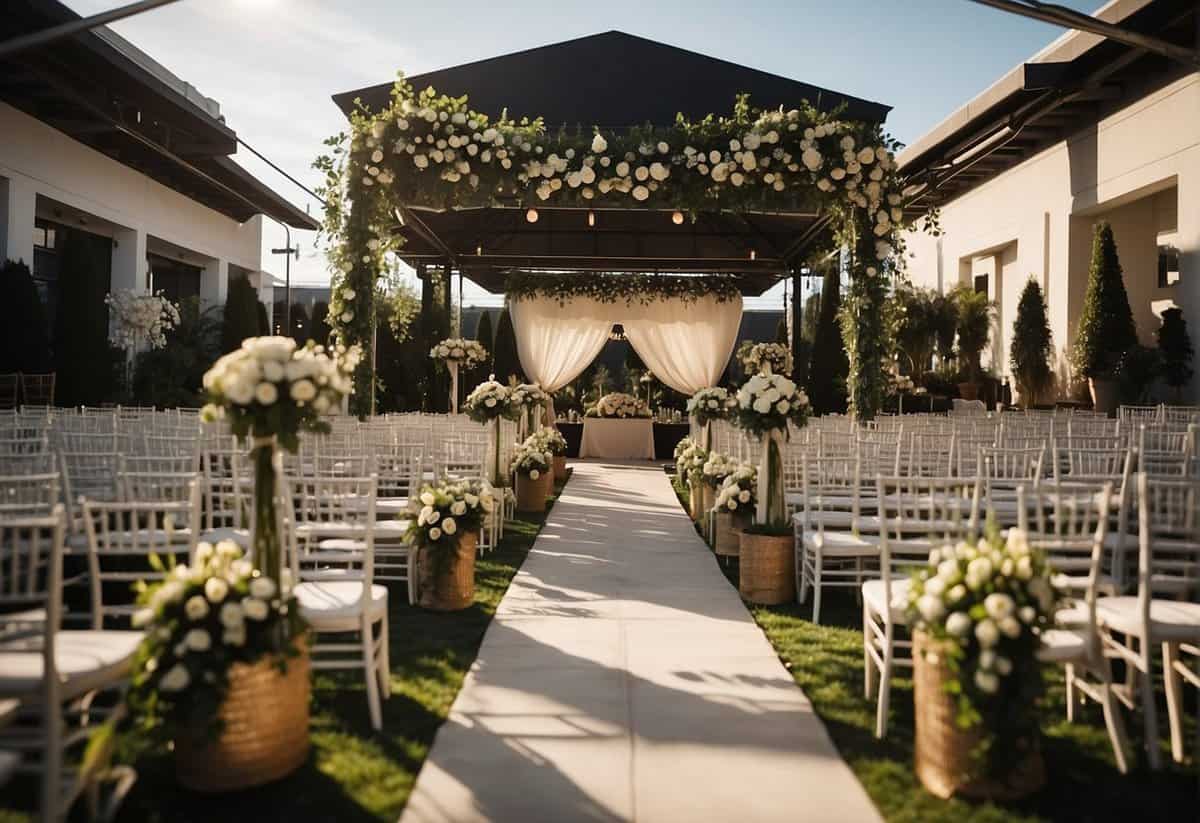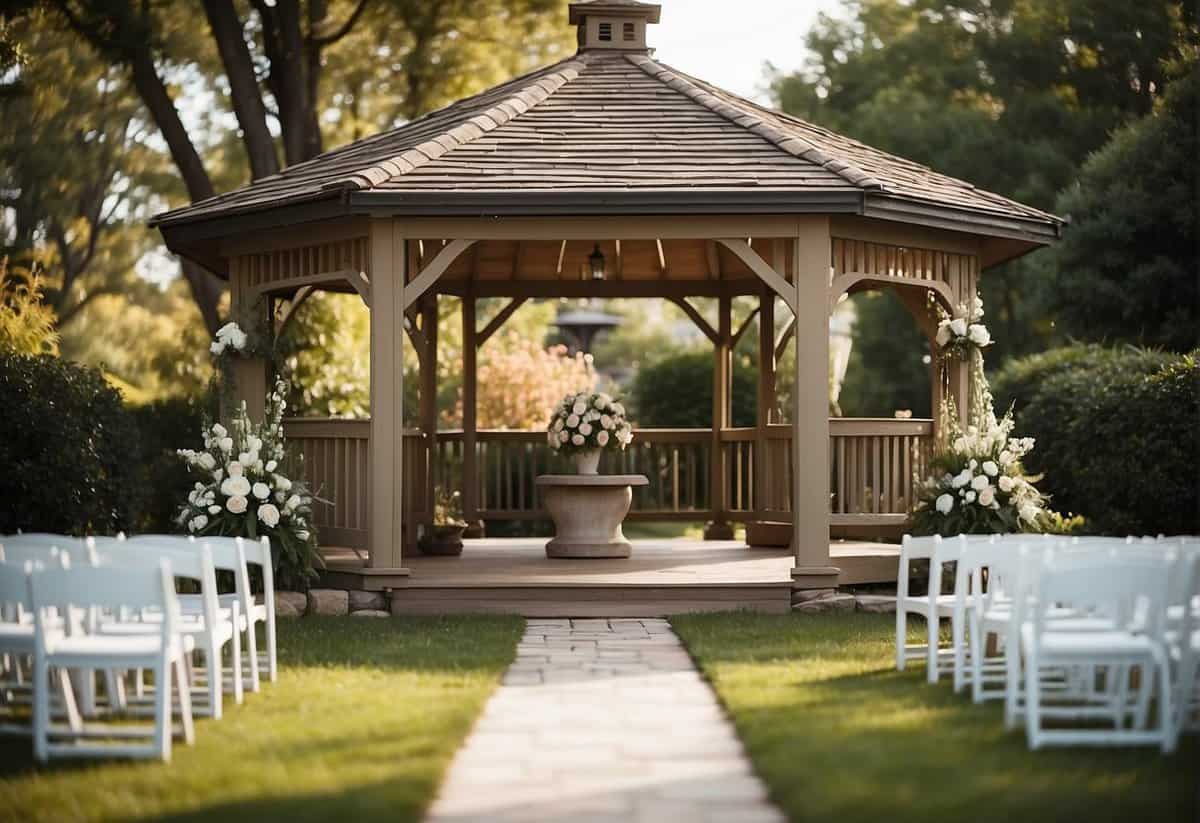Can I Hold a Wedding on My Property? Essential Tips for Home Nuptials
Deciding to host a wedding on your property can imbue your special day with unparalleled personalization and charm compared to a traditional wedding venue. Your backyard or family estate provides a unique backdrop that can be tailored to your tastes and sentimental preferences. However, transforming your residence into a dream wedding destination is not as simple as setting a date and sending out invitations. It involves navigating the maze of local zoning laws, obtaining necessary permits, and ensuring that your property is equipped to handle the rigors of a large event.

Careful preparation is essential when you’re converting your personal space into a venue. This includes assessing the layout for ceremony and reception areas, arranging amenities like tents and restrooms, and coordinating with vendors for catering, décor, and entertainment. Remember to consider the impact on your neighbors and the environment. Minimizing noise, controlling traffic, and managing waste are all important factors in hosting a successful at-home wedding that respects your community and surroundings.
Key Takeaways
- Hosting a wedding on your property adds personalization and requires careful planning.
- Comply with local zoning and obtain permits to legally host your event.
- Prepare and manage your property effectively to ensure a smooth wedding experience.
Understanding Local Zoning and Permitting

Before you start planning your dream wedding on your property, it’s essential to grasp local zoning and permit requirements. Your county’s zoning laws determine how you can use your land, and you’ll likely need specific permits to legally host a wedding.
Navigating Zoning Laws
Zoning laws vary by location, and they dictate what activities may occur on your property. If your land is zoned for residential use, hosting a commercial event like a wedding may require a change to commercial zoning or obtaining a special-use permit. Checking with your local zoning office should be your first step. You’ll want to ask about what’s allowed under your current zoning and understand the process for a zoning variance if needed.
Securing the Necessary Permits
Once you’re clear about the zoning categories, you’ll need to apply for the necessary permits. This might include:
- Event permits
- Parking permits
- Health and safety inspections
Permits ensure that your event complies with local laws and regulations, which can vary depending on the size and scope of your wedding. Be prepared to submit a detailed application covering all aspects of the event.
Consulting with an Attorney
Consulting with an attorney who specializes in land use and zoning can be invaluable. An attorney can assist with the application process, help secure any additional licenses necessary, and represent you if you need to request rezoning. They’ll provide guidance tailored to your county’s specific laws, ensuring you’re covered for your big day.
Preparing Your Property for the Wedding

Planning a wedding on your property involves careful consideration of space and amenities to ensure your event is both beautiful and comfortable for your guests. Here’s how to best prepare your grounds for the big day.
Optimizing Space for Events
Consider the layout of your property to create a seamless flow between areas like the ceremony space, reception area, and dance floor. If you have a barn or ranch, make use of these structures for a rustic and charming setting. Clear unnecessary items and furniture to maximize the use of space. Mark areas for different events with signs, so guests can easily navigate from one spot to another.
- Ceremony Area: Choose a flat area to set up seating and an altar.
- Reception/Dance Area: Ensure there’s enough room for tables, chairs, and entertainment.
Maintenance and Aesthetics
Your property’s appearance is key to setting the stage for your wedding. Start with maintenance tasks like mowing the lawn and pruning plant beds to enhance the landscape design. Freshen up paint on fences and buildings for a put-together look. Consider planting flowers or setting up potted plants that complement your wedding’s color scheme.
- Lawn: Regularly mow and water the grass for a lush green look.
- Buildings/Barn: Address any repairs and apply a fresh coat of paint if needed.
Addressing Restroom Facilities
Providing ample and clean restroom facilities is crucial. If your home doesn’t accommodate your guest count, consider renting portable restrooms or a restroom trailer for a comfortable experience. Place them in an accessible yet discreet location and ensure they are well signposted.
- Standard Portables: A budget-friendly option, great for casual events.
- Restroom Trailers: More luxurious and can include amenities like lighting and running water.
By paying attention to these details, you’ll create a welcoming and functional space for your wedding celebration.
Managing Logistics and Vendors

When planning a wedding on your property, coordinating the logistics and vendors is essential to ensure everything runs smoothly. This includes working with caterers, rental companies, and ensuring all services like lighting and sound are set up effectively.
Handling Catering and Rentals
For your special day, you’ll need to work closely with a catering company to determine the menu and make sure they can handle the size and scope of your wedding. Consider things like kitchen space and equipment—some caterers will bring their own, while others may need you to rent additional items. As for rentals, a tent rental may be necessary, especially if you’re planning an outdoor ceremony or reception. Don’t forget about tables, chairs, linens, and dishware. It’s wise to review all contracts thoroughly to ensure you understand the terms and are prepared for the costs.
Coordinating with Vendors
Vendors are your allies in creating the wedding of your dreams, so maintaining open communication is key. Create a detailed timeline for your vendors so they know when to arrive, set up, and break down. This should help manage traffic and parking logistics, particularly if your property has limited space. Also, consider the flow of vendors coming in and out—stagger their arrival times to avoid bottlenecks.
Ensuring Proper Lighting and Sound
Good lighting not only sets the mood but also ensures that your guests can see well after sundown. Whether you need romantic string lights or something more robust, work with your lighting provider to design a plan that illuminates your space beautifully. Similarly, for sound, clarity is crucial, especially during the ceremony. Work with your sound vendors to test equipment beforehand—checking for noise ordinances in your area is also a good idea to avoid any disruptions.
Mitigating Impact on Neighbors and Environment
When you plan a wedding on your property, it’s essential to consider the impact on your neighbors and the environment. Keeping a friendly relationship with those living nearby and preserving the area’s natural beauty are both achievable with thoughtful planning.

Adhering to Noise Ordinances
To respect your neighbors, familiarize yourself with local noise ordinances to avoid complaints. For example, if your area has a 10 p.m. noise curfew, plan to end any music or loud festivities by this time. Additionally, notifying your neighbors in advance of your event can foster goodwill and understanding.
Planning for Parking and Traffic
Traffic congestion and parking overflow can be a significant inconvenience, so planning is crucial.
- Parking: Designate a parking area that doesn’t intrude on neighboring properties. Consider hiring a valet service to maximize space and reduce disruption.
- Traffic: If you’re expecting a large number of guests, consult with local traffic authorities to manage the flow and ensure that emergency vehicles can access the area if needed.
Ensuring Safety and Compliance
Your priority is the safety of your guests and the protection of property, both yours and your neighbors’.
- Fire Marshal: Check with your local fire marshal to ensure all safety regulations are met, such as clear pathways and proper fire extinguisher placement.
- Insurance: Verify that your insurance policies cover property damage and liability for large events. This may involve purchasing additional coverage for the day of the event.
Frequently Asked Questions

When considering a wedding on your property, it’s important to be aware of the regulations and preparations required to ensure a smooth event.
What are the legal requirements for hosting a wedding on personal property?
To host a wedding on your personal property, you must comply with local ordinances regarding noise, parking, and other potential issues. It’s important to check with your city or county to understand specific legal requirements that may apply.
How many guests are typically allowed at a residential wedding event?
The number of guests allowed at a residential wedding can vary greatly depending on the space available and local regulations. It’s crucial to consider the capacity of your property and consult with local authorities if you expect a large gathering.
Is a permit necessary to host a large party, such as a wedding, at my home?
In many cases, a permit is necessary to host a large party like a wedding at your home, especially if it involves street closures, amplified sound, or a significant number of guests. Check with your local government to determine if you need a permit.
Are there any zoning considerations when planning a wedding on private property?
Zoning laws dictate how a property can be used, so you’ll need to ensure that hosting a wedding complies with the zoning regulations of your area. This may involve restrictions on the number of events per year or the commercial use of a residential property.
How can I convert my backyard into a venue for a wedding event?
Transform your backyard into a wedding venue by renting tents, chairs, tables, and decor. Ensure there’s adequate lighting and consider a dance floor or stage for entertainment. Professional caterers and event planners can also help tailor your space to your needs.
Is it possible to organize a standing-room-only wedding in a residential area?
Organizing a standing-room-only wedding is possible but consider your guests’ comfort and the available space. Local regulations might limit the number of attendees, and you’ll want to ensure there’s enough room for everyone to enjoy the celebration safely.


